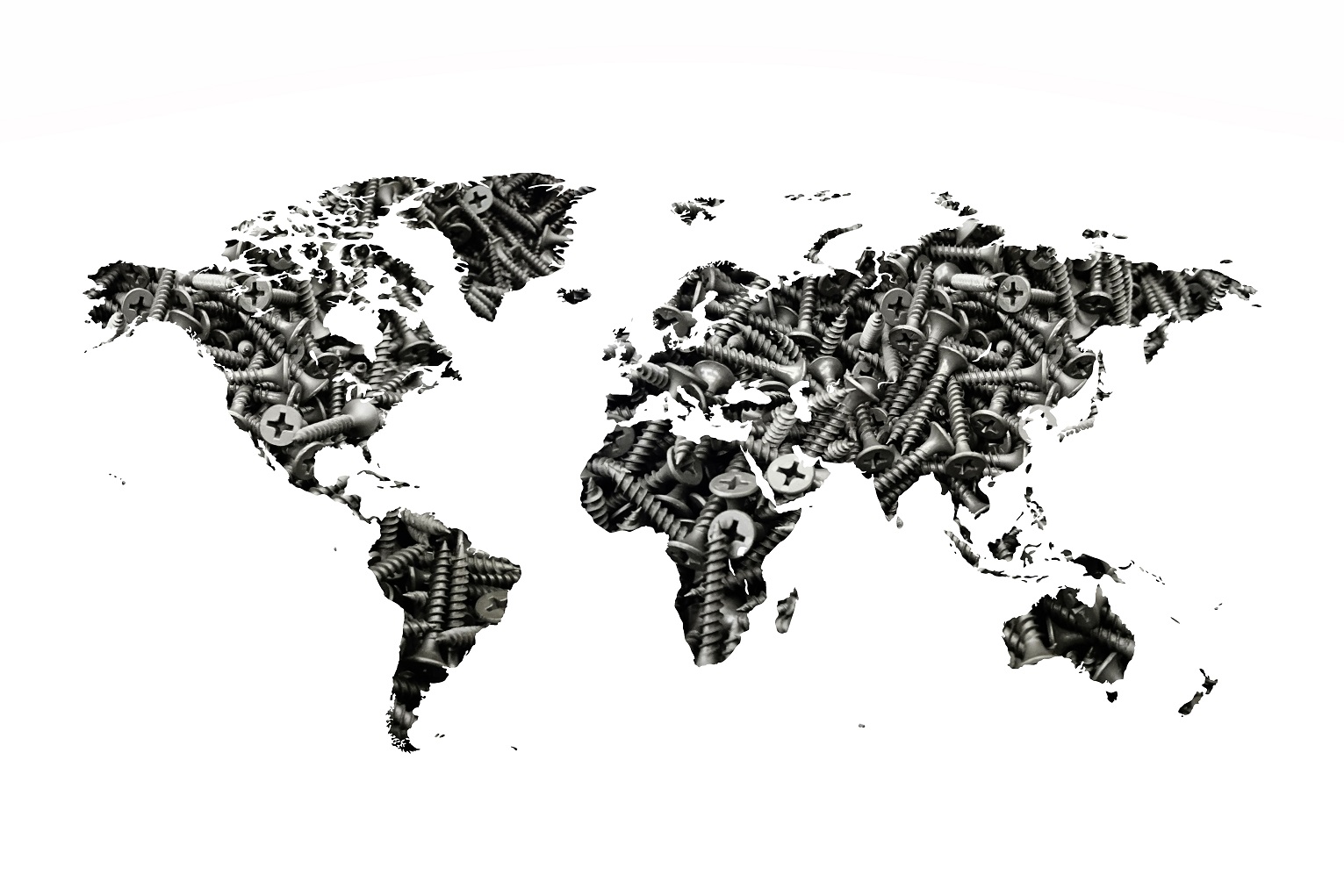News
What's Taiwan's Competitiveness with Major Competitors Around?


Add to my favorite
2024-12-09
Years ago, when the EU imposed anti-dumping (AD) duties on Chinese fasteners, Taiwan's fastener exports experienced an unprecedented boom, reaching over 1.6 million tons annually. However, with the end of COVID-19, an excess of inventory due to stagnant orders from overseas customers, rising manufacturing costs, and unstable geopolitical conditions have hindered Taiwan's fastener exports from achieving new highs in recent years. Additionally, competition from China and emerging markets, potential impacts from the upcoming CBAM taxation, a stronger focus on developing IT industries in Taiwan, and pressure from customers for Chinese or Taiwanese suppliers to establish overseas factories, have created significant challenges for many Taiwanese companies. Given these market changes, maintaining robust vitality in the global fastener supply chain has become a priority for all stakeholders in Taiwan's fastener industry.
In an interview with Fastener World, TFTA (Taiwan Fastener Trading Association) President Arthur Chiang reported that the Taiwanese fastener industry is facing a production and sales decline of approximately 10-30% this year. This downturn is attributed to factors such as the Russia-Ukraine war, fluctuations in exchange rates, inflation, and rising electricity and oil prices that have disrupted market recovery. Arthur emphasized that the primary challenge is manufacturing costs; for Taiwan to remain competitive, it needs to refine its production processes. While customers may consider switching to lower-priced competitors, Taiwanese companies offer superior quality and advanced technology along with a more stable financial foundation. Therefore, diversifying orders to include Taiwanese firms is a wise choice for sustainable operations and risk management.
Several business owners have expressed concerns about tariff decisions following Trump's inauguration. The tariffs imposed on fasteners from countries like China, Taiwan, and Southeast Asian nations will significantly influence the fastener landscape in the Asia-Pacific region.
Signs of Recovery on the Horizon
While opinions on economic performance vary and different fastener categories experience distinct supply and demand dynamics, making a comprehensive judgment is challenging. Based on export data from the first nine months of this year, Taiwan exported approximately 936,000 tons of fasteners—slightly up from 934,000 tons during the same period last year. This increase coincided with low-priced wire rods being dumped by China and other countries, potentially signaling that the economy has bottomed out and is poised for recovery. Following this trend, the export forecast for 2024 could still reach around 1.2 million tons, suggesting that there is no need for excessive pessimism. If tensions from the Russia-Ukraine war ease next year and major central banks implement interest rate cuts and quantitative easing policies to stimulate growth, a new wave of global economic recovery may be on the horizon.
The sluggish European economy can be partly attributed to hasty zero-carbon policies. European car manufacturers were compelled to develop electric vehicles but did not anticipate that competitive Chinese electric cars would capture significant market share before their own technology had matured. Furthermore, Germany—Europe's largest automobile manufacturer—is facing higher energy costs due to the Russia-Ukraine conflict, resulting in decreased demand for fasteners due to sluggish industrial production. Germany is also a crucial partner for Taiwan's fastener exports, indirectly affecting Taiwanese companies' orders. Economic cycles fluctuate naturally; thus, it is estimated that current demand stagnation is likely a short-term phenomenon.
Potential Impact of EU Carbon Tax on Fastener Prices
As January 1, 2026 approaches—the date when the EU CBAM will formally impose carbon taxes—manufacturers worldwide are beginning to feel pressure from European importers. Fortunately, Taiwanese fastener manufacturers still hold an advantage over other Asian competitors regarding carbon reduction efforts. The president of EFDA noted in an exclusive interview that Taiwanese manufacturers are ahead in preparing for CBAM requirements, which serves as an important bargaining chip for expanding sales in Europe.
However, there are concerns within the industry that achieving the EU's net-zero carbon reduction target may increase manufacturing costs by an additional 20-30%, further raising fastener prices. Whether this will be beneficial or detrimental for end users remains uncertain. Questions arise about whether the implementation schedule might be delayed or if carbon taxes could be adjusted based on product types or import quantities—issues that policymakers will need to consider comprehensively moving forward. Moreover, there are concerns about whether government-imposed carbon taxes will effectively enhance global environmental conditions without inadvertently harming businesses. A transparent verification process may be necessary for global firms to assess these policies' effectiveness.
A Taiwanese insider indicated that standard fastener products—excluding specialized or certified items—will likely see price cuts that could significantly impact the industry. Consequently, Taiwanese manufacturers should focus more on developing medium- to high-end products while proactively managing customer relationships to understand their needs and quality requirements better.
Competing Amidst Increasing Challenges
Compared to the IT industry—which has garnered significant attention from Taiwanese officials and media—the fastener industry operates under less favorable conditions. Challenges include labor shortages and high operating costs due to limited land availability and difficulties obtaining competitively priced materials domestically. Additionally, Taiwan does not benefit from preferential or zero tariffs like ASEAN countries do. As a result of these disadvantages, some manufacturers are opting to invest overseas; while large factories with strong capital may manage this transition well by serving local markets alongside exports, small and medium-sized enterprises (SMEs) face greater challenges.
Given increasing pressure from European and U.S. customers regarding overseas factory setups and shrinking orders, Fastener World has organized several initiatives this year, including leading Taiwanese suppliers to a tour in Vietnam and Osaka, aimed at helping Taiwanese companies explore investment opportunities abroad and build partnerships with overseas businesses.
Although Taiwan's fastener industry initially outpaced those in China and Southeast Asia in development speed, rapid advancements in these regions mean Taiwanese businesses can no longer afford complacency; they now face significant competition both as rivals and potential collaborators in the global market. Over the past three decades, many Taiwanese companies have established factories in Vietnam and other Southeast Asian countries where they have thrived. Even Chinese firms are investing in Southeast Asia seeking new opportunities; thus competition will only intensify.
If companies choose to establish overseas factories, they must thoroughly understand local regulations to ensure compliance and avoid legal issues—especially given Vietnam's stringent environmental laws and U.S. concerns regarding illicit transshipment issues in Vietnam and Mexico. However, industry players should not be discouraged; while initial challenges may seem daunting, those who can identify their positioning and competitive advantages can succeed in any market.
扣件
國際展會
惠達雜誌
匯達實業
外銷媒合
廣告刊登
螺絲五金
五金工具
紧固件
台灣扣件展
印度新德里螺絲展
越南河內螺絲展
墨西哥瓜達拉哈拉螺絲展
美國拉斯維加斯螺絲暨機械設備展
波蘭克拉科夫螺絲展
義大利米蘭螺絲展
德國司徒加特螺絲展
FASTENER FAIR INDIA
FASTENER FAIR VIETNAM
FASTENER FAIR MEXICO
FASTENER POLAND
FASTENER FAIR ITALY
FASTENER FAIR GLOBAL
fastener world
READ NEXT

Subscribe







